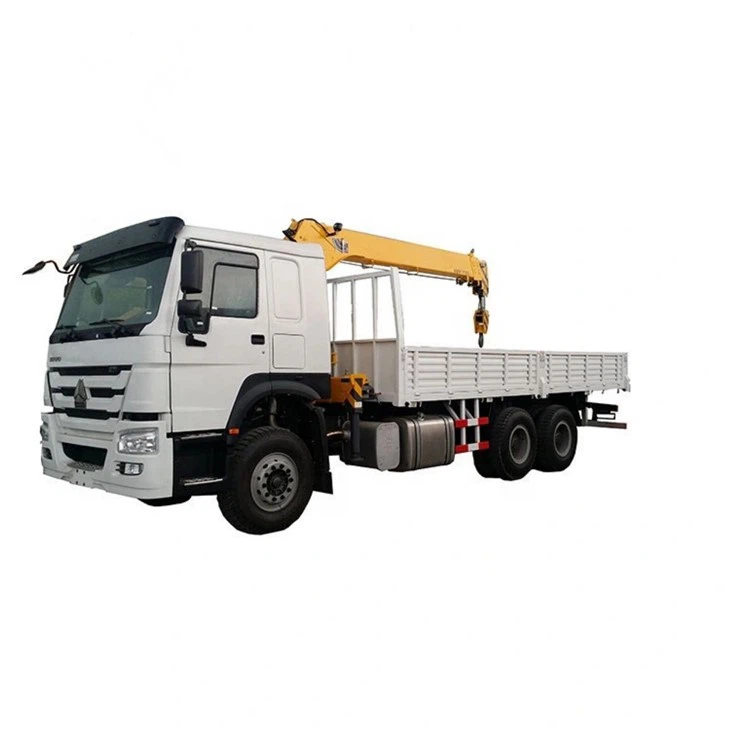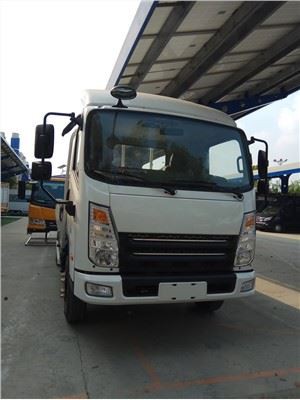Electric Cargo Trucks: The Future of Sustainable Transportation

The transportation industry is undergoing a significant transformation, and at the forefront of this change are electric cargo trucks. As the world increasingly shifts towards sustainable solutions, electric cargo trucks are emerging as a viable alternative to traditional diesel-powered vehicles. This article delves into the functionality, benefits, and future of electric cargo trucks, providing insights to businesses, logistics firms, and environmentally conscious consumers.
Understanding Electric Cargo Trucks
Electric cargo trucks are heavy-duty vehicles powered entirely by electricity. They utilize electric motors and batteries instead of internal combustion engines, resulting in a zero-emission performance. This section will explore the fundamental components and operational mechanisms of electric cargo trucks.
Key Components of Electric Cargo Trucks
- Electric Motor: The heart of the vehicle, converting electrical energy into mechanical energy for propulsion.
- Batteries: High-capacity lithium-ion batteries store energy, providing power to the motor and other systems.
- Charging Systems: Infrastructure enabling the replenishment of battery energy, including fast chargers and standard wall outlets.
- Regenerative Braking: A mechanism that captures energy typically lost during braking, converting it back into stored power.
How Electric Cargo Trucks Work
Electric cargo trucks operate by drawing power from their battery packs, which is then used to run the electric motor. When the driver accelerates, electricity flows from the battery to the motor, creating torque and motion. The regenerative braking system helps recharge the batteries during deceleration, enhancing overall efficiency.
Benefits of Electric Cargo Trucks
Electric cargo trucks offer numerous advantages over traditional fossil fuel-powered trucks. This section outlines the key benefits that make them an appealing choice for businesses and the environment alike.
Environmental Impact
One of the primary benefits of electric cargo trucks is their reduced environmental impact. By producing zero tailpipe emissions, they contribute significantly to lowering air pollution levels.

Cost Efficiency
While the upfront costs of electric cargo trucks can be higher compared to diesel trucks, the long-term savings on fuel and maintenance create a compelling case for their adoption. Electric vehicles typically have fewer moving parts, resulting in lower maintenance costs.
Government Incentives
Many governments worldwide are offering incentives for businesses to transition to electric vehicles. These may include tax breaks, grants, and subsidies that can offset the initial investment in electric cargo trucks.
Noise Reduction
Electric cargo trucks operate more quietly than their diesel counterparts, leading to reduced noise pollution, especially in urban areas. This is particularly beneficial for deliveries during nighttime hours.
Challenges Facing Electric Cargo Trucks
Despite their benefits, electric cargo trucks face several challenges that could impact their widespread adoption. This section discusses these hurdles and potential solutions.
High Initial Costs
The initial investment required for electric cargo trucks is often a significant barrier for many businesses. However, as technology advances and production scales up, these costs are projected to decrease.
Charging Infrastructure
A robust and accessible charging infrastructure is essential for the successful integration of electric cargo trucks into logistics operations. The lack of sufficient charging stations, especially in rural areas, poses a challenge for long-haul transportation.

Battery Range and Performance
The range of electric cargo trucks can be a concern, particularly for long-distance journeys. However, advancements in battery technology are continually improving performance and reducing range anxiety.
Driver Training and Acceptance
Transitioning to electric vehicles may require additional training for drivers, who may be unfamiliar with their operation. Educating drivers about the unique aspects of electric cargo trucks will be crucial in facilitating this shift.
Key Manufacturers in the Electric Cargo Truck Market
Several companies are leading the electric cargo truck revolution, showcasing innovative designs and robust capabilities. This section highlights some prominent manufacturers.
Tesla
Tesla’s all-electric Semi truck is designed for freight transport, with a range of up to 500 miles and exceptional torque. Its innovative features make it one of the leading electric cargo trucks on the market.
Rivian
Rivian is making waves with its R1T electric truck, which is not only designed for consumer use but also features models capable of handling commercial operations, providing flexibility for transport needs.
Volta Truck
Volta’s electric trucks are designed for urban deliveries and come with a large cargo capacity. They focus on minimizing environmental impact while maximizing performance in city environments.
BYD
BYD specializes in electric trucks and buses, with a range of models designed for different applications, from urban logistics to long-haul transport.
Real-world Applications of Electric Cargo Trucks
Electric cargo trucks are already being deployed across various industries. This section highlights practical examples of their use in real-world scenarios.
Urban Logistics
Electric cargo trucks are increasingly being used for last-mile deliveries within cities. For instance, delivery companies like DHL and UPS have integrated electric vehicles into their fleets to reduce emissions and noise pollution.
Food Distribution
Companies like FreshDirect have begun employing electric cargo trucks to distribute goods in urban centers. This approach aligns with their sustainability goals while providing efficient service.
Construction and Material Transport
Electric cargo trucks are also making inroads in the construction industry. Firms are using electric vehicles for transporting materials and equipment, minimizing their carbon footprint on job sites.
The Future of Electric Cargo Trucks
The future of electric cargo trucks looks promising as advancements in technology and infrastructure continue to progress. This section explores potential developments and trends.
Advancements in Battery Technology
Future improvements in battery technology are expected to increase range, reduce charging times, and lower costs. Solid-state batteries are among the innovations that could reshape the market.
Autonomous Electric Cargo Trucks
As autonomous vehicle technology matures, we may see the emergence of self-driving electric cargo trucks. These vehicles could revolutionize logistics, enhancing efficiency and safety.
Integration with Renewable Energy
The combination of electric cargo trucks and renewable energy sources like solar and wind power could create a sustainable transportation ecosystem, further reducing the carbon footprint of freight transport.

Practical Tips for Businesses Considering Electric Cargo Trucks
For businesses looking to transition to electric cargo trucks, several considerations can help streamline the process. This section provides actionable tips.
Evaluate Your Needs
Assess the specific needs of your operation, such as range requirements, load capacities, and delivery schedules, to determine the best electric cargo truck models for your business.
Consider Total Cost of Ownership
Look beyond the initial purchase price. Calculate long-term savings on fuel, maintenance, and potential government incentives to understand the total cost of ownership.
Plan for Charging Infrastructure
Develop a robust charging strategy, considering both the availability of charging stations and your fleet’s operational needs. Installing dedicated charging stations on-site may be a viable option.
Stay Informed on Regulations
Keep abreast of local regulations and incentives related to electric vehicles, as these can influence your transition plan and potential savings.
FAQ About Electric Cargo Trucks
What is the average range of electric cargo trucks?
The average range varies by model, but many electric cargo trucks currently on the market offer ranges between 200 and 500 miles on a single charge.
How long does it take to charge an electric cargo truck?
Charging times depend on the level of charger used. Fast chargers can charge electric cargo trucks to around 80% in approximately 30 minutes, while standard home charging may take several hours.
Are electric cargo trucks suitable for long-haul transportation?
While many electric cargo trucks are designed primarily for urban use, advancements in battery technology are enabling long-haul electric trucks with extended ranges, making them increasingly viable for longer distances.
What are the maintenance requirements for electric cargo trucks?
Electric cargo trucks generally require less maintenance than traditional trucks due to fewer moving parts. Regular checks on battery health, brakes, and tires are still necessary, but engine maintenance is minimal.
Can electric cargo trucks perform well in extreme weather conditions?
Yes, electric cargo trucks are designed to operate efficiently in various weather conditions. However, extreme temperatures can affect battery efficiency, so businesses should factor this into operational planning.
How are governments supporting the transition to electric cargo trucks?
Governments are providing incentives such as tax credits, grants, and subsidies to encourage businesses to adopt electric vehicles. Additionally, investments in charging infrastructure support wider adoption.
